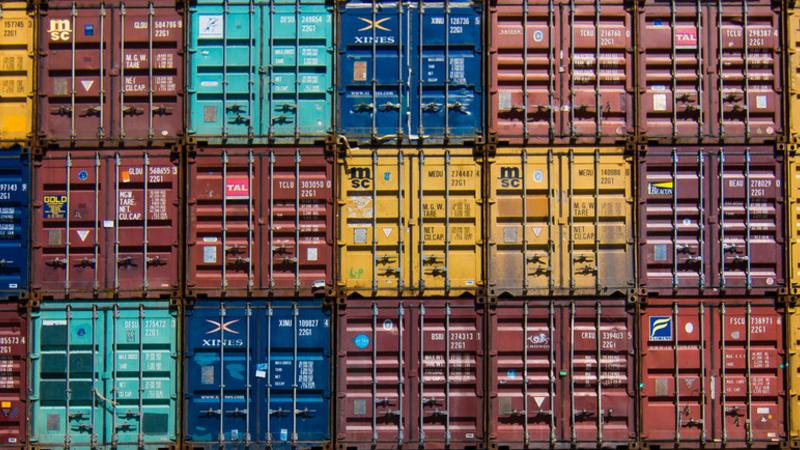
In the context of globalization today, the economic connections between countries are becoming increasingly close, and trade exchanges are also becoming more frequent. However, force majeure factors such as tensions, trade disputes, and geopolitical conflicts in international relations often trigger significant market fluctuations. The recent incident of the European Union imposing high tariffs on imported electric vehicles from China is a typical example of this. This incident not only reveals the complexity of international economic and trade relations, but also highlights the importance of responding to international market fluctuations.
According to reports, the European Union has imposed a temporary tariff of up to 37.6% on electric vehicles imported from China, with the reason behind it being to counteract China's perceived unfair policy subsidies. Such trade barriers not only increase the sales cost of Chinese electric vehicles in the EU market, but may also trigger a chain reaction and have a profound impact on the economic and trade cooperation between China and Europe. In fact, once this trade friction escalates, it is likely to cause damage to the interests of both export enterprises, which will then be transmitted to the consumer end, manifested as an increase in commodity prices and supply uncertainty.
Faced with such a trade dispute, the Chinese government has taken targeted response measures by launching so-called anti-dumping investigations on pork from Denmark, the Netherlands, and Spain. This measure is not only a countermeasure to the high tariffs imposed by the EU, but also a way to uphold international trade rules. However, such a trade confrontation may ultimately result in a "lose lose" situation, as imposing tariffs on both sides will increase costs for consumers, reduce market demand, and thus offset some or even all of the trade benefits.
Through this event, we can delve deeper into how to stabilize market order in complex international relations. Firstly, countries need to adhere to an open, inclusive, cooperative, and win-win international perspective, and resolve differences and issues through dialogue and consultation. In the field of international trade and economics, maintaining the fairness and transparency of rules through multilateral mechanisms such as the World Trade Organization is an effective way to prevent trade wars. When trade frictions occur, all parties should remain calm and restrained, avoid taking extreme actions, and seek reasonable solutions through equal consultation.
For the government, in addition to actively participating in international cooperation, it should also strengthen the adjustment and upgrading of domestic industries and enhance its core competitiveness. Industries that rely on unfair means such as subsidies are difficult to sustain in the long run. Only by improving the overall quality of the industry through technological innovation and market expansion can they better adapt to the international competitive environment. At the same time, the government should provide necessary support and guidance to enterprises to help them cope with the uncertainty of the external market.
For enterprises, it is important to closely monitor changes in the international situation and flexibly adjust their business strategies. When facing challenges such as trade barriers, enterprises can enhance their ability to resist risks by diversifying their market layout, improving product quality and service levels. In addition, companies can actively utilize financial instruments for risk management, such as using foreign exchange options, futures, and other financial products to avoid exchange rate and price volatility risks.
Investors should maintain a clear mind and make prudent decisions when facing market fluctuations caused by international trade disputes. In the investment decision-making process, it is not only necessary to consider traditional financial analysis indicators, but also to pay more attention to the internationalization level, market competitiveness, and potential risk factors of the enterprise. By diversifying investment portfolios and implementing appropriate risk management measures, investment risks can be effectively reduced and the stability of investment returns can be protected.
Although international trade disputes may bring certain fluctuations and challenges to the market, through reasonable response strategies and flexible market operations, all parties can still maintain market stability and their own interests. In future international economic and trade exchanges, we hope that all parties can uphold the principle of mutual benefit and win-win, and jointly promote the prosperity and development of the global economy. In this process, each participant needs to continuously improve their adaptability and market competitiveness to better cope with the complex and ever-changing international market environment.

As 2026 approaches, the space sector is once again entering the public spotlight, becoming part of everyday discussion.
As 2026 approaches, the space sector is once again entering…
Microsoft CEO Satya Nadella recently launched a personal bl…
In the early hours of January 3, 2026, flames in the Caribb…
As 2026 begins, the euro area economy remains mired in a "w…
According to Xinhua News Agency, the Ministry of Agricultur…
Recently, the United States launched a military raid on Ven…